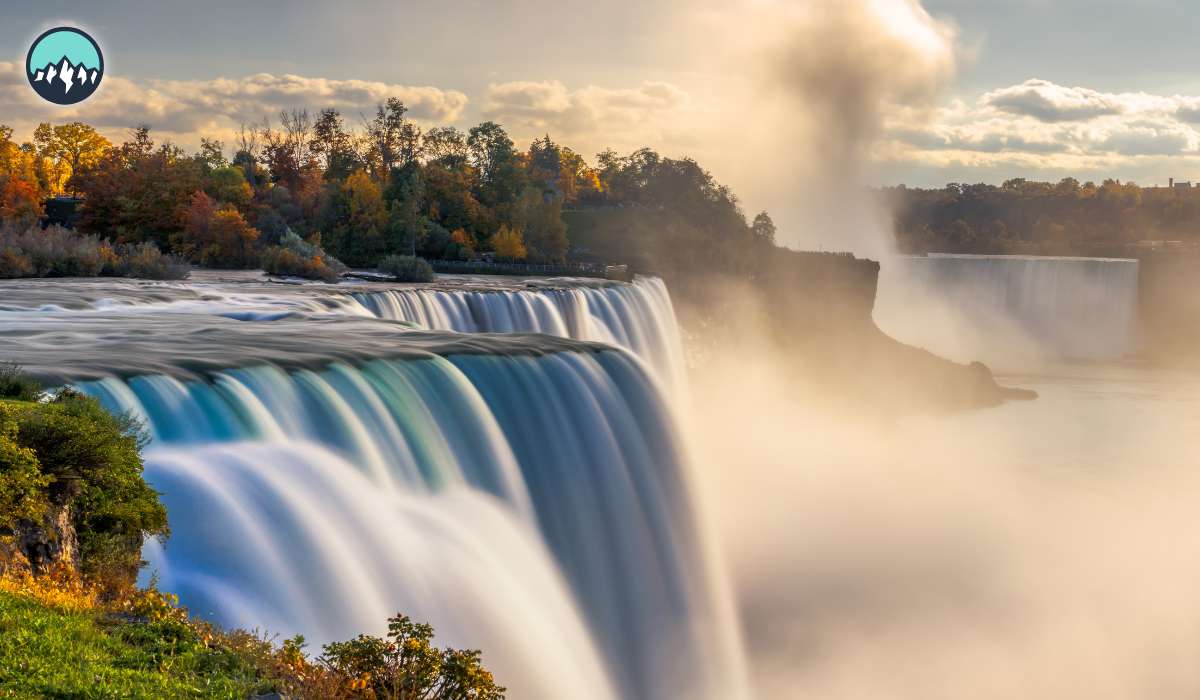From Niagara Falls to Banff: Must-Visit Destinations for Newcomers to Canada
20 Mar 2025

Canada is the second-largest country in the world, with a total area of 9,984,670 km2. It has stunning natural beauty, vibrant cities, and rich cultural diversity. For newcomers to Canada, exploring the country’s iconic destinations is a way to appreciate its beauty and connect with its history, culture, and people. It offers many must-visit destinations that cater to every interest and preference, from the thundering Niagara Falls to the majestic Rocky Mountains of Banff.
This blog takes an in-depth look into the top destinations for newcomers to Canada and details how to plan your visit to these incredible locations.
What Are the Must-Visit Destinations for Newcomers to Canada?

For newcomers to Canada, exploring this vast nation is a thrilling adventure. From breathtaking natural wonders to vibrant urban centers, here are some must-visit destinations across Canada.
Niagara Falls
Niagara Falls, a geological marvel, is more than just a tourist attraction; it's a testament to the power of nature. Formed by glacial erosion, the falls continue to reshape the landscape, with research indicating ongoing erosion patterns. The hydrological impact of the Great Lakes contributes significantly to the falls' immense water flow, making it a powerful spectacle.
Tourism here drives the local economy, with attractions like the Maid of the Mist and Journey Behind the Falls offering immersive experiences. Environmentally, water quality and ecosystem preservation are paramount, with ongoing initiatives addressing these concerns. Culturally, the falls hold historical significance for Indigenous communities and have inspired countless artistic expressions.
Toronto
Toronto, Canada's largest city, is a melting pot of cultures, offering diverse experiences. Research indicates that Toronto's multiculturalism is key to its economic success and social vibrancy. The city's neighborhoods, from Little Italy to Chinatown, reflect its diverse population. The CN Tower, a symbol of Toronto, provides panoramic city views, while the Royal Ontario Museum showcases global art and culture. Toronto's food scene is a culinary adventure, reflecting the city's multicultural makeup.
Montreal
Montreal, a city steeped in history and culture, uniquely blends European charm and North American vibrancy. The city's French heritage is evident in its architecture, cuisine, and language. Old Montreal, a historic district, features cobblestone streets and 17th-century buildings. Montreal's festivals, such as the Montreal International Jazz Festival, attract visitors from around the world. Research highlights Montreal’s place as a key Canadian cultural center.
Quebec City
Quebec City, a UNESCO World Heritage site, offers a taste of Europe in North America. The city's fortified walls, cobblestone streets, and French-inspired architecture create a unique atmosphere. The Château Frontenac, a grand hotel, symbolizes Quebec City. The city's winter carnival is popular, showcasing Quebec's cultural traditions. Research indicates that Quebec City’s history is vital to understanding the French influence in Canada.
Banff National Park
Banff National Park, a UNESCO World Heritage site, is a paradise for outdoor enthusiasts. The park's majestic Rocky Mountains, turquoise lakes, and abundant wildlife offer breathtaking scenery. Research highlights the park's ecological significance and the importance of conservation efforts. Lake Louise and Moraine Lake are iconic destinations known for their stunning beauty. Hiking, skiing, and wildlife viewing are popular activities. The town of Banff provides a base for exploring the park, with a range of accommodations and amenities.
Vancouver
Vancouver, a coastal city surrounded by mountains and ocean, offers a unique blend of urban living and outdoor recreation. Stanley Park, a vast urban park, provides hiking, biking, and picnicking opportunities. The city's diverse neighborhoods, from Gastown to Granville Island, offer a range of cultural experiences. Vancouver's food scene is known for its fresh seafood and international cuisine. Research shows that Vancouver is a highly desirable place to live.
Prince Edward Island
Prince Edward Island, Canada's smallest province, is known for its picturesque landscapes and laid-back lifestyle. The island's red sand beaches, rolling hills, and charming villages offer a tranquil escape. Cavendish, the setting for Anne of Green Gables, is a popular tourist destination. The island's seafood, particularly its lobster, is a culinary highlight. Research indicates that PEI’s tourism industry is vital to the local economy.
Churchill, Manitoba
Churchill, Manitoba, is a remote town known as the "Polar Bear Capital of the World." The town's location on the shores of Hudson Bay makes it a prime location for polar bear viewing. Research demonstrates the impact of climate change on polar bear populations. Visitors can take tundra buggy tours to observe polar bears in their natural habitat. Churchill also offers opportunities for beluga whale watching and viewing the northern lights.
Whistler
Whistler, a world-renowned ski resort, offers year-round adventure opportunities. In winter, skiing and snowboarding are popular activities. In summer, hiking, mountain biking, and zip-lining are available. Whistler Village, a pedestrian-friendly area, offers a range of shops, restaurants, and accommodations. Research shows that Whistler is a significant economic driver for the region.
Practical Considerations for Newcomers to Canada

Moving to Canada involves more than just packing your bags; it requires careful planning and understanding of the practicalities of settling into a new life. These considerations are vital for a smooth transition and integration into Canadian society, from healthcare to establishing financial stability.
Budgeting
The costs of living and traveling in Canada requires careful budgeting. Start by researching the average accommodation, food, and transportation expenses in the regions you plan to visit in Canada. To mitigate unexpected costs, build a contingency fund and explore travel during the off-season, when prices are generally lower.
Transportation
Canada's vast geography necessitates thoughtful transportation planning. Investigate diverse travel options, including:
- Domestic flights,
- Long-distance trains,
- Intercity buses, and
- Rental vehicles.
For extensive rail travel, consider the benefits of a Canada Rail Pass, which offers flexible travel options. Understanding the logistical demands of covering vast distances is crucial for a smooth journey.
Weather
Canada's climate exhibits significant variations across its regions and seasons. Before traveling in Canada, thoroughly research the weather conditions specific to your destinations. Be prepared for potentially extreme temperatures, especially during the harsh Canadian winters, and pack appropriate clothing.
Respect for Nature
Canada's pristine natural landscapes are a national treasure that demands respect and careful stewardship. Adhere to Leave No Trace principles by properly disposing of waste and minimizing environmental impact. Avoid disturbing wildlife and stay safe from animals in their natural habitats. Enhance your understanding of local ecosystems to contribute to their preservation.
Tipping
Tipping is a customary practice in Canada, reflecting appreciation for service provided in various industries. Familiarize yourself with the established tipping etiquette for restaurants, taxis, and other service sectors. As a general guideline, a gratuity of 15-20% is typically expected for satisfactory service.
Wildlife Safety
Canada's wilderness areas are home to diverse wildlife, including bears, moose, and wolves, requiring heightened awareness and safety precautions. Conduct thorough research on wildlife safety guidelines before venturing into natural environments. When hiking or camping in bear country, carry bear spray and know how to use it effectively. Always maintain a safe distance from wildlife and avoid approaching or feeding animals.
Travel Insurance
Securing comprehensive travel insurance is essential for newcomers exploring Canada. It provides a safety net for unforeseen events. Research and select a policy that covers medical expenses, trip cancellations, and lost or stolen luggage. Prioritize policies that offer adequate coverage for your stay and planned activities.
How Can I Visit Canada’s Must-See Destinations?

Visiting Canada’s top destinations requires careful planning, as entry requirements vary depending on your nationality and travel purpose. Whether you’re coming for a short visit to Canada or an extended stay, understanding visa options and travel logistics will help ensure a smooth journey.
Canadian Visitor Visa
For most international tourists, a Canadian Visitor Visa is the primary requirement. Eligibility varies by nationality, so thorough research on the official Immigration, Refugees and Citizenship Canada (IRCC) website is vital. Applications necessitate detailed documentation, including proof of funds, travel itinerary, and ties to your home country.
Research indicates that processing times flux, demanding early application to avoid travel disruptions. Visa refusal rates, while variable, are influenced by incomplete applications or perceived risk of overstaying.
Working Holiday Visa
For young adults aged 18-35 (age ranges may vary by country), the Working Holiday Visa, part of the International Experience Canada (IEC) program, offers a unique opportunity. Research confirms that this visa facilitates cultural exchange and provides temporary work and travel pathways.
Eligibility depends on nationality and participation in reciprocal agreements. Applicants must demonstrate financial stability and meet specific criteria. The IEC program's online application system requires careful attention to detail.
FAQs
What Should I Pack For a Trip Across Canada?
Pack layers of clothing to adapt to Canada's diverse climates, including waterproof outerwear and warm layers for varying temperatures. Comfortable, sturdy walking shoes are essential for exploring urban and natural environments. Don't forget essentials like a universal adapter, necessary medications, and personal toiletries, considering varying regional availability.
How Can I Stay Connected While Traveling in Canada?
Purchasing a local Canadian SIM card provides reliable mobile data and calling within the country, offering cost-effective communication. Many cafes, restaurants, and public spaces offer free Wi-Fi, allowing you to stay connected without extra charges. Research mobile carrier plans before your trip to find the best option.
Do I Need a Parking Pass to Enter Banff National Park?
Yes, you need a Parks Canada Discovery Pass or a daily park pass to enter Banff National Park, which covers entry and parking fees. These passes are required for all visitors and can be purchased online or at park entrances. Displaying the pass in your vehicle is mandatory for parking within the park.
What Documents do I Need for a Cross-country Road Trip in Canada?
You'll need a valid driver's license from your home country, vehicle registration documents, and proof of valid vehicle insurance in Canada. If you rent a vehicle, ensure you have the rental agreement and any necessary international driving permits. A valid passport and any required visas are essential for border crossings.




